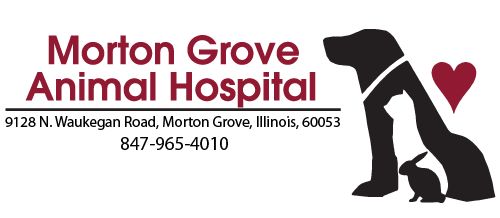Pet Health Articles
-
The general condition of your dog's skin and coat are good indicators of his health. A healthy coat should be shiny and smooth, not brittle or coarse, and healthy skin should be supple and clear, not greasy, flaky, or bumpy. Selective breeding has led to the development of dogs with various coat characteristics requiring varying grooming needs. Nutrition also plays an important role in skin and coat maintenance.
-
Cockatiels make excellent first birds for families. Larger than budgies and smaller than larger parrots, these entertaining birds are easy to maintain and provide endless hours of entertainment and companionship. They are beautiful flyers and enjoy lots of activity and play. Cockatiels love to chew, so providing bird-safe toys will distract them from unwanted destructive chewing. They may be adopted from shelters or purchased from a pet store or a reputable breeder. They require annual, routine veterinary health check-ups to help prevent disease and help maintain a long-lasting, healthy relationship between you and your bird.
-
Cockatoos are a suitable family pet for families with adult children. Their jumpy nature and strong bite make them inappropriate for families with young children. These birds are high maintenance both physically and emotionally, as they demand a lot of attention and a great deal of time outside their cages. Without adequate attention, cockatoos sometimes become excessively boisterous and are potentially destructive. Cockatoos need to chew, so provide a continuous supply of non-toxic wood or cardboard bird-safe toys. Cockatoos may be adopted from shelters or purchased from pet stores or reputable breeders. They require annual, routine veterinary health check-ups to help prevent disease.
-
Choosing the right collar or harness for a dog requires understanding how each device works and what is best for the dog and the owner. Correct selection, fit, and use are crucial for any training tool's success.
-
Pet birds often become ill when they are not cared for or fed appropriately. Birds can develop infections with bacteria (e.g., Chlamydia psittaci) and parasites (e.g., Giardia). They also commonly suffer from reproductive problems (e.g., egg binding and tumors) and feather-picking. Birds on all-seed, high-fat diets may become obese and develop fatty liver syndrome. Older birds may develop cloacal papillomas or cancer. Your veterinarian familiar with birds will formulate an appropriate diagnostic and treatment plan if your pet bird becomes ill.
-
Common conditions of pet tortoises include: metabolic bone disease (MBD), pyramiding, vitamin A deficiency, respiratory diseases, abscesses, shell infections, shell trauma, and parasites. This handout outlines signs and treatments for each of these conditions. Seek immediate veterinary care if there is any deviation from normal in your pet tortoise.
-
There are several problems that can occur in aquatic turtles. This handout discusses the most noted problems: calculi, tissue prolapses, irregular shell growth, shell fractures or trauma, algae on the shell, skin and shell sloughing, Salmonella infection that can be passed to humans, dystocia, and hibernation.
-
Snakes have several unique problems and understanding these problems will allow you to better care for your pet and minimize future health care problems and concerns. This article outlines some of the most common problems.
-
Constipation is infrequent or difficult passage of stool or feces and is typically a temporary condition. Though there are many causes of constipation in dogs, most cases are caused by ingestion of irritating or indigestible substances. Constipation is usually diagnosed through a physical examination and medical history. A rectal exam to rule out rectal strictures, tumors, foreign bodies, or other abnormalities may be done. Abdominal radiographs, blood tests, and urinalysis are valuable for a full diagnosis and development of a treatment plan. Biopsies may also be recommended if a rectal mass or stricture is suspected. Most cases of constipation are relatively easy to treat through the use of manual removal, enemas, and medications. The prognosis for constipation is determined by the exact cause.
-
Conures are considered small- to medium-sized birds and are characterized by long slender bodies, long tapered tails, and large beaks. Tame conures can be very affectionate, social birds that demand a moderate amount of daily attention. Like all other pet birds, annual veterinary health check-ups are highly recommended.


